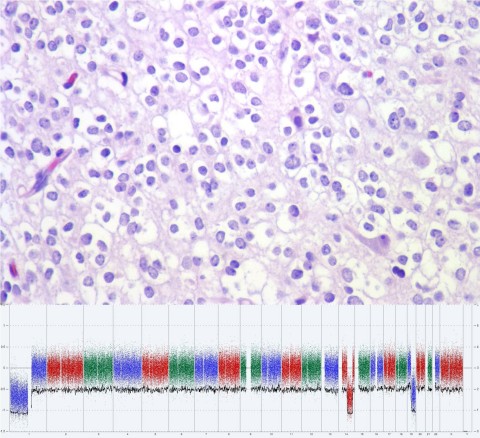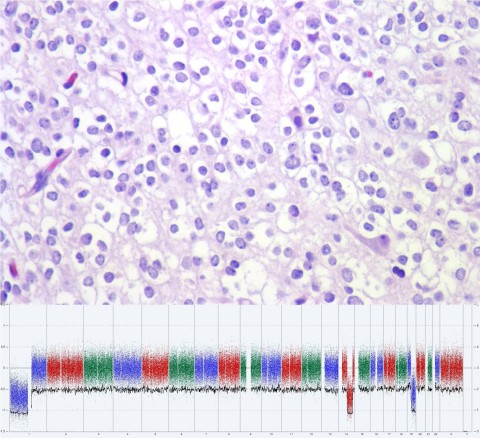NORTHFIELD, Ill.--(BUSINESS WIRE)--With today’s launch of the open comment period for the draft “Biomarker Testing for the Diagnosis of Diffuse Gliomas” evidence-based guideline, the College of American Pathologists (CAP) joins forces across the clinical care team to improve how adult and pediatric patients with these tumors are diagnosed and treated.
The guideline’s draft recommendations are open for public comment from September 9-30, 2019. All stakeholders—including oncologists, pathologists, neurosurgeons, nurses, and allied professionals—are encouraged to review and submit feedback on the draft at cap.org.
Diffuse gliomas are the most common primary brain tumors, affecting approximately 15,000 people in the US each year, according to the Central Brain Tumor Registry of the United States. Traditionally, these tumors were classified by their microscopic properties as astrocytomas or oligodendrogliomas, and then graded based on the presence of morphologic features as WHO grade II, III or IV.
Diffuse gliomas are now known to include discreet clinical and genetic subsets and modern molecular pathology laboratories characterize these tumors at the molecular level, allowing a more refined integrated diagnosis that predicts the tumor’s clinical course and indicates possible treatment options. However, the molecular profiles and genetic alterations of diffuse gliomas can vary widely, as can the testing methods that pathologists use to assess them.
“Molecular testing has become an established component of the integrated diagnosis of diffuse gliomas,” explains guideline developer Daniel J. Brat, MD, PhD, FCAP. “And while there is some standardization around molecular-level definitions and classifications, until now, we have not had clinical practice guidance for diffuse glioma molecular testing more broadly.”
Dr. Brat chairs a panel of experts from the following societies that are collaborating on the guideline: the American Society of Clinical Oncology, the Society for Neuro-Oncology, the American Association of Neuropathologists and the Association for Molecular Pathology.
The panel will consider all comments garnered during the comment period prior to finalizing the recommendations and submitting the guideline for publication in the Archives of Pathology & Laboratory Medicine.
Most notably, the draft recommendations:
- Call for IDH mutational testing for all diffuse gliomas in the appropriate clinical and pathologic setting.
- Address the use of tests that assess the status of several genetic alterations that allow pathologists to classify diffuse gliomas according to the World Health Organization classification schema.
- Offers guidance specific to biomarker testing in pediatric patients with diffuse gliomas.
To read and comment on the draft guideline, visit cap.org until September 30, 2019.
About the College of American Pathologists
As the world's largest organization of board-certified pathologists and leading provider of laboratory accreditation and proficiency testing programs, the College of American Pathologists (CAP) serves patients, pathologists, and the public by fostering and advocating excellence in the practice of pathology and laboratory medicine worldwide. For more information, READ THE CAP ANNUAL REPORT at CAP.ORG.




